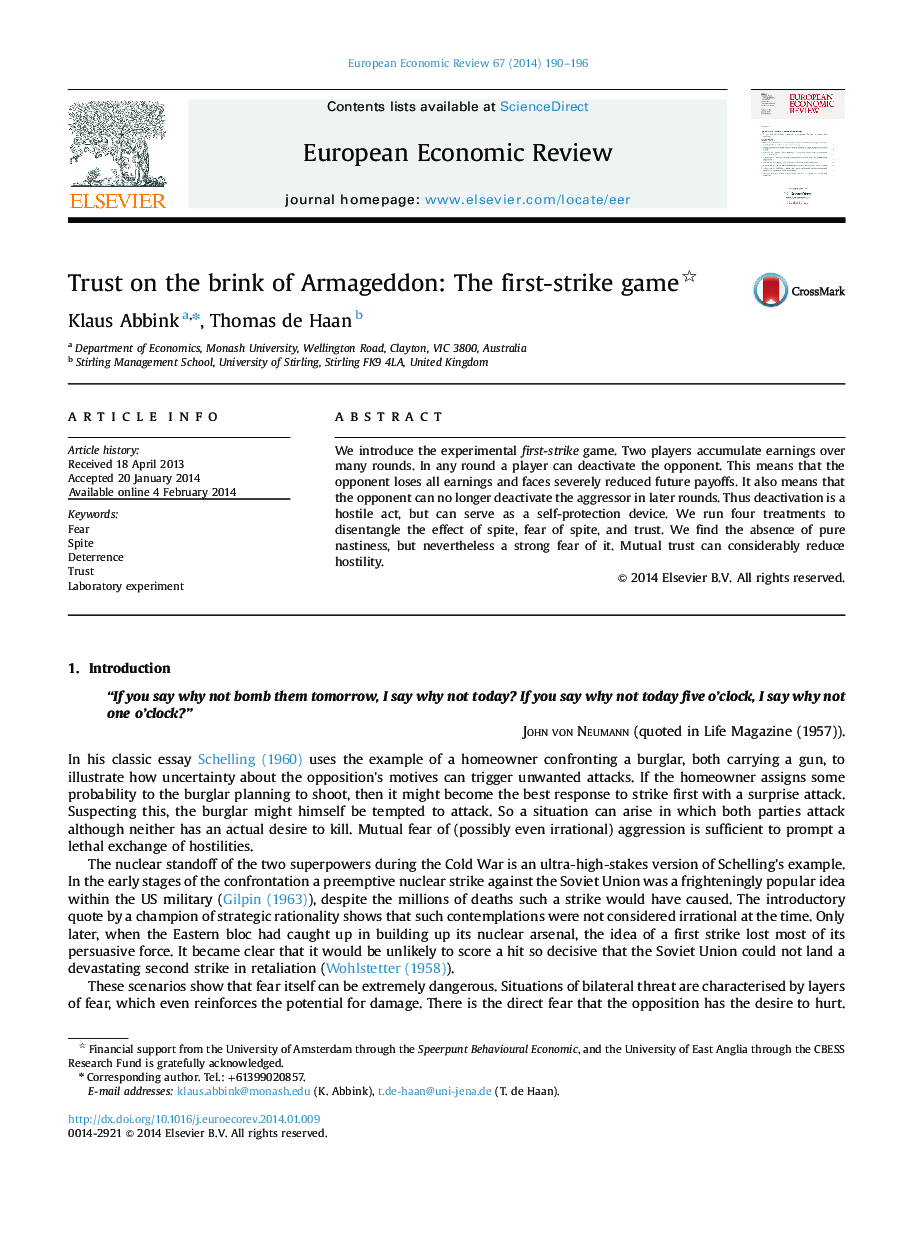| Article ID | Journal | Published Year | Pages | File Type |
|---|---|---|---|---|
| 5066806 | European Economic Review | 2014 | 7 Pages |
â¢We introduce the First Strike Game to disentangle the motives of nastiness, fear, and trust in a situation of mutual threat.â¢The experiment allows to separate direct fear of hostility from higher levels of fear (fear of fear).â¢We find no nastiness, but widespread fear of it leads to hostile behaviour.â¢Higher levels of fear do not add to the effect of direct fear.â¢Trust can help survive a Cold War standoff.
We introduce the experimental first-strike game. Two players accumulate earnings over many rounds. In any round a player can deactivate the opponent. This means that the opponent loses all earnings and faces severely reduced future payoffs. It also means that the opponent can no longer deactivate the aggressor in later rounds. Thus deactivation is a hostile act, but can serve as a self-protection device. We run four treatments to disentangle the effect of spite, fear of spite, and trust. We find the absence of pure nastiness, but nevertheless a strong fear of it. Mutual trust can considerably reduce hostility.
